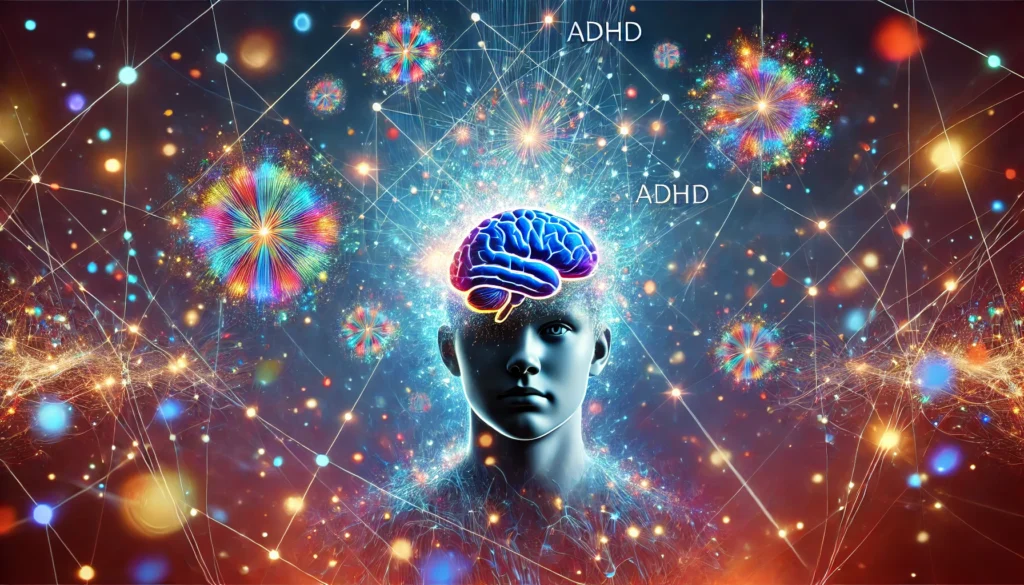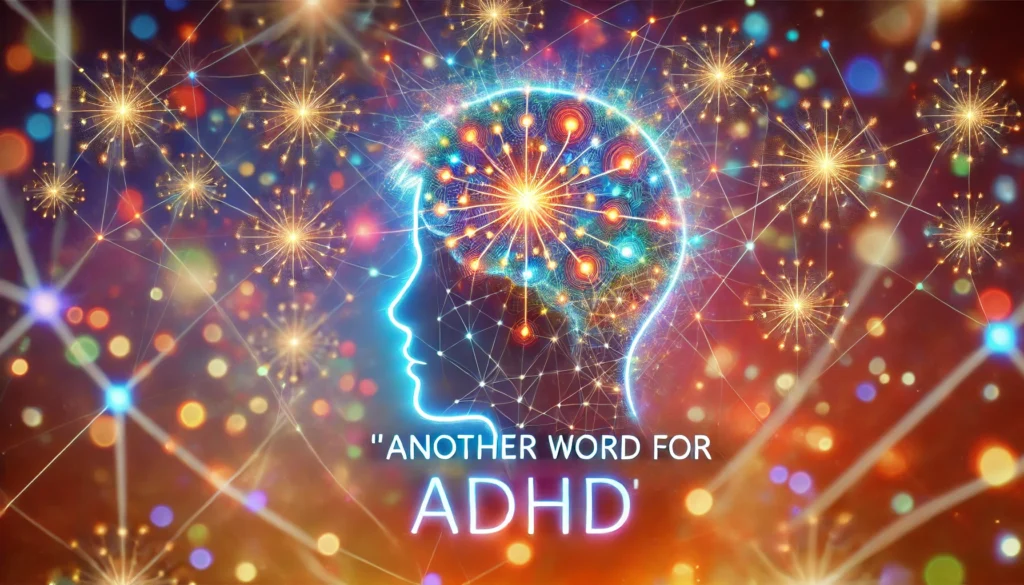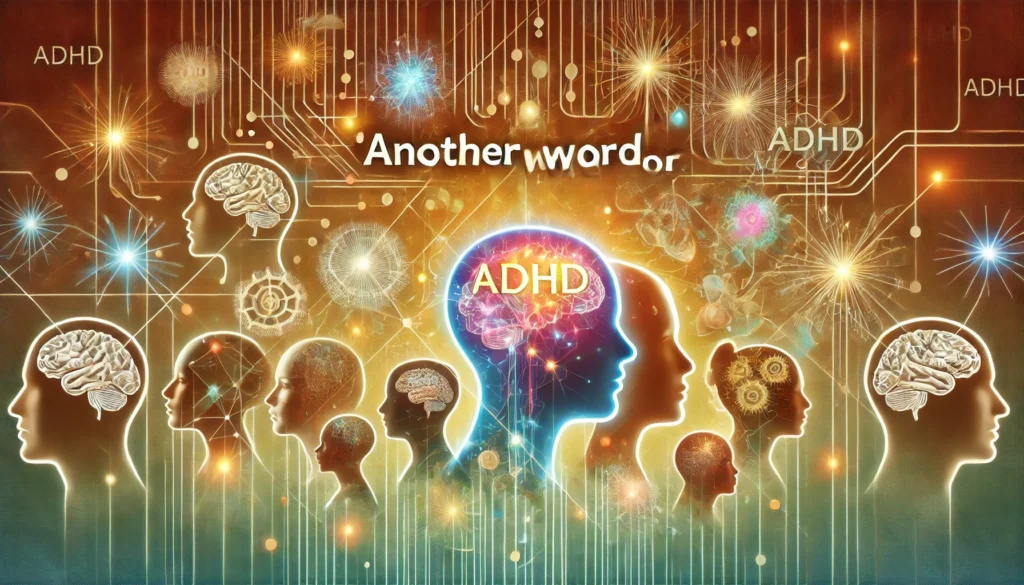Attention Deficit Hyperactivity Disorder (ADHD) has become a widely recognized term in today’s society. However, the conversation around ADHD often leaves people searching for alternative terms or synonyms that better capture the diverse experiences of individuals with this condition. In this article, we delve into the various terminologies related to ADHD, explore their nuances, and discuss how they reflect the complexity of this neurodevelopmental disorder.
You may also like: Enhancing Concentration: Strategies for ADHD
Understanding ADHD: A Brief Overview
ADHD is a neurodevelopmental disorder characterized by symptoms of inattention, hyperactivity, and impulsivity. Despite its prevalence, the condition is often misunderstood, and those affected may face stigma and misconceptions. The term “ADHD” itself can seem limiting, which is why exploring alternative terms can be enlightening.
The Core Symptoms of ADHD
ADHD manifests primarily through three core symptoms: inattention, hyperactivity, and impulsivity. Individuals may struggle with staying focused on tasks, often jumping from one activity to another without completion. Hyperactivity involves excessive movement and difficulty sitting still, while impulsivity leads to hasty actions without forethought.
The Emotional Landscape of ADHD
Beyond the apparent symptoms, ADHD also affects an individual’s emotional world. Many people with ADHD experience heightened emotional responses and have difficulty regulating their emotions. This can lead to challenges in social settings and affect relationships, as their reactions might be perceived as exaggerated or inappropriate.
The Impact on Daily Living
ADHD significantly impacts daily life, affecting academic performance, workplace productivity, and personal relationships. Time management, organization, and prioritization of tasks become challenging, often leading to stress and frustration. Understanding these impacts can help tailor supportive strategies to improve quality of life for those with ADHD.
The Historical Context of ADHD Terminology
Historically, ADHD has undergone several iterations in terms of its name and diagnostic criteria. From “minimal brain dysfunction” in the early 20th century to “hyperkinetic reaction of childhood,” the evolution of ADHD terminology reflects the growing understanding of the disorder.
Early Descriptions and Misconceptions
In the early 1900s, ADHD was often misunderstood and mischaracterized as mere bad behavior or a lack of discipline. The term “minimal brain dysfunction” was one of the first attempts to medicalize the condition, though it was vague and lacked specificity. This era was marked by a struggle to define and understand the neurobiological aspects of ADHD.
Transition to Modern Understanding
As the 20th century progressed, scientific advancements led to more refined definitions. The term “hyperkinetic reaction of childhood” emerged, highlighting the hyperactivity component. Researchers began to recognize ADHD as a legitimate disorder, warranting further study and more precise terminology.
The Emergence of ADD and ADHD
In the late 20th century, the term “Attention Deficit Disorder” (ADD) was used, which included individuals with inattention without hyperactivity. Eventually, this was expanded to ADHD to encompass the hyperactive component, acknowledging the heterogeneity of symptoms. This shift marked a significant step toward a comprehensive understanding of the disorder’s multifaceted nature.

Alternative Terms and Synonyms for ADHD
Let’s explore some of the alternative terms and synonyms that provide a broader view of ADHD:
Hyperactive Brain
The term “hyperactive brain” is sometimes used to describe the heightened neural activity often observed in individuals with ADHD. This term emphasizes the increased energy and activity levels in the brain, which can manifest as restlessness, impulsivity, and difficulty focusing.
Understanding Neural Activity
The concept of a “hyperactive brain” focuses on the physiological aspects of ADHD. Research shows that individuals with ADHD may have differences in brain structure and function, particularly in areas related to attention and impulse control. This term aims to encapsulate these neural disparities and their behavioral manifestations.
Implications for Self-Perception
Using “hyperactive brain” can shift how individuals perceive themselves. Rather than viewing symptoms as purely behavioral issues, this term suggests a biological basis, promoting a more compassionate self-understanding. It encourages individuals to view their experiences as part of their neurological makeup rather than personal failings.
Challenges and Controversies
While “hyperactive brain” highlights biological factors, it may inadvertently downplay the role of environmental influences. Critics argue that focusing solely on neural activity could lead to neglecting the importance of context, such as stress or lifestyle factors, in managing ADHD symptoms. Balancing these perspectives is crucial for a holistic view.
Synonym for ADHD: Executive Function Disorder
Some professionals suggest “Executive Function Disorder” as a synonym for ADHD. This terminology highlights the challenges individuals face in planning, organizing, and managing tasks—skills governed by executive functions of the brain. This perspective aligns with the understanding that ADHD is not merely a behavioral issue but involves underlying cognitive processes.
The Role of Executive Functions
Executive functions are cognitive processes essential for goal-directed behavior. They include working memory, flexible thinking, and self-control. Individuals with ADHD often experience deficits in these areas, leading to difficulties in managing daily tasks and responsibilities.
Broadening the ADHD Narrative
By framing ADHD as an “Executive Function Disorder,” the focus shifts from surface behaviors to underlying cognitive challenges. This broader narrative helps in tailoring interventions that target specific executive function deficits, offering more personalized and effective support for those with ADHD.
Potential Misinterpretations
While this term provides a valuable perspective, it may also lead to misunderstandings. Some might interpret it as suggesting that all individuals with executive function difficulties have ADHD, which is not the case. Clear communication is necessary to differentiate between ADHD and other conditions that may also affect executive functioning.
Another Word for ADHD: Attention Deficit Trait
“Attention Deficit Trait” (ADT) is a term coined by Dr. Edward Hallowell to describe behaviors similar to ADHD that arise from high-stress environments, rather than a neurodevelopmental disorder. While not a direct synonym, ADT reflects how environmental factors can mimic ADHD symptoms, underscoring the importance of context in understanding attention-related challenges.
Environmental Influences on Attention
Attention Deficit Trait (ADT) highlights how external pressures and stress can lead to attention-related difficulties. In fast-paced, high-demand environments, even individuals without ADHD can exhibit symptoms such as distractibility and disorganization, emphasizing the need to consider environmental contexts.
Differentiating ADT from ADHD
It’s crucial to distinguish between ADT and ADHD, as their origins differ significantly. ADHD is a neurodevelopmental disorder with a genetic component, while ADT results from lifestyle and situational factors. This differentiation guides appropriate interventions, focusing on stress management for ADT and more comprehensive approaches for ADHD.
The Role of Stress Management
Understanding ADT underscores the importance of managing stress and creating supportive environments. Techniques such as mindfulness, organizational strategies, and time management can mitigate ADT symptoms, enhancing focus and productivity. This approach highlights the adaptability of attention-related challenges to contextual changes.
Neurodivergence and ADHD
In recent years, the concept of neurodivergence has gained traction. This term encompasses a range of cognitive variations, including ADHD, autism, dyslexia, and more. By framing ADHD as a form of neurodivergence, this perspective promotes acceptance and appreciation of diverse cognitive profiles, moving away from pathologizing differences.
Embracing Cognitive Diversity
Neurodivergence reframes cognitive differences as natural variations rather than disorders. This perspective celebrates the unique strengths and abilities of individuals with ADHD, advocating for a society that values diverse ways of thinking and problem-solving.
Challenging Traditional Norms
The neurodivergent movement challenges conventional norms about intelligence and productivity. By recognizing ADHD as part of a broader spectrum of cognitive diversity, it questions standardized measures of success and encourages more inclusive practices in education and employment.
Building Inclusive Communities
Promoting neurodivergence involves creating environments that accommodate various cognitive styles. This includes flexible workspaces, individualized learning plans, and support systems that acknowledge and leverage the strengths of neurodivergent individuals, fostering a more inclusive and equitable society.

Current Trends and Future Implications
The exploration of alternative terms for ADHD is part of a broader movement towards understanding and embracing neurodiversity. As society becomes more aware of the complexities of ADHD, the language used to describe it evolves, influencing public perception and policy.
The Role of Language in Shaping Perception
Language plays a crucial role in shaping how society perceives and responds to ADHD. By using terms that emphasize strengths and variability, rather than deficits, we can foster a more inclusive and supportive environment for individuals with ADHD.
The Power of Positive Language
The words we choose can significantly impact self-esteem and societal attitudes. By framing ADHD in terms of strengths and potential rather than limitations, we can alter public discourse and reduce stigma. Positive language encourages acceptance and understanding, paving the way for more supportive communities.
Shifting Societal Narratives
As terminology evolves, so too does society’s narrative about ADHD. By adopting language that reflects the complexity and diversity of ADHD experiences, we can challenge outdated stereotypes and promote a more nuanced understanding of the condition. This shift is essential for fostering empathy and inclusivity.
Impacts on Policy and Practice
Changes in language can influence policy and practice in education, healthcare, and employment. By adopting inclusive terminology, institutions can develop more equitable policies that accommodate the needs of individuals with ADHD, ensuring access to resources and opportunities for success.
Future Directions in ADHD Research
Ongoing research continues to shed light on the neurobiological underpinnings of ADHD. Advances in brain imaging and genetic studies hold promise for more personalized approaches to diagnosis and treatment. As our understanding of ADHD deepens, new terminologies may emerge that better capture the multifaceted nature of the disorder.
The Role of Technology in ADHD Research
Technological advancements are revolutionizing ADHD research. Brain imaging techniques, such as fMRI and PET scans, provide insights into the neural mechanisms underlying ADHD, offering potential for more precise diagnoses. These technologies also facilitate the development of targeted interventions that address specific neural pathways.
Genetic Insights and Implications
Genetic studies are uncovering the hereditary aspects of ADHD, identifying specific genes that contribute to the disorder. This knowledge can lead to personalized treatment plans based on an individual’s genetic profile, enhancing the effectiveness of interventions and reducing trial-and-error approaches.
Collaborative Research Efforts
Interdisciplinary collaboration is crucial for advancing ADHD research. By integrating findings from neuroscience, psychology, and genetics, researchers can develop comprehensive models of ADHD that consider both biological and environmental factors. This holistic approach promises more accurate diagnoses and effective treatments.

Practical Advice for Navigating ADHD Terminology
For those seeking to navigate the complexities of ADHD terminology, consider the following:
Communicate with Clarity
When discussing ADHD, use language that reflects the individual’s experience. Whether it’s “hyperactive brain” or “executive function challenges,” choose terms that resonate with the person’s unique strengths and challenges.
Tailoring Language to Individuals
Effective communication involves understanding and respecting individual preferences. Some may prefer terms that highlight their strengths, while others might resonate with clinical language. Engaging in open dialogue about terminology can foster mutual understanding and respect.
Addressing Misunderstandings
Clear communication helps prevent misunderstandings about ADHD. By explaining the rationale behind chosen terms, we can educate others and dispel myths. This approach promotes informed conversations that enhance awareness and empathy for those with ADHD.
Stay Informed
Keep abreast of the latest research and trends in ADHD. Understanding the evolving landscape of ADHD terminology can enhance your ability to provide accurate and empathetic support to those affected.
Engaging with Current Research
Staying informed involves actively engaging with the latest research in ADHD. Attending conferences, reading scientific journals, and participating in online forums can deepen your understanding of the disorder and its evolving terminology, ensuring you remain well-informed.
Adapting to New Insights
As new research emerges, be open to revising your understanding and language. The field of ADHD is dynamic, and staying adaptable allows you to incorporate the latest insights into your communication and support strategies, benefiting those with ADHD.
Advocate for Inclusivity
Promote the use of language that celebrates neurodiversity and fosters inclusivity. Encourage conversations that highlight the strengths and contributions of individuals with ADHD, challenging the stigma that often accompanies the diagnosis.
Creating Supportive Environments
Advocacy involves creating environments that recognize and accommodate diverse cognitive profiles. By promoting inclusive practices in schools, workplaces, and communities, we can ensure that individuals with ADHD have equal opportunities to succeed and thrive.
Educating Others
Raising awareness about ADHD and its diverse manifestations is key to challenging stigma. By educating peers, colleagues, and the public, we can foster a culture of acceptance and understanding, reducing misconceptions and promoting empathy.
Empowering Individuals with ADHD
Encouraging self-advocacy is a powerful tool for empowerment. By equipping individuals with ADHD with the knowledge and skills to articulate their needs and preferences, we can help them navigate societal systems and advocate for themselves effectively.
Conclusion
The exploration of alternative terms for ADHD underscores the dynamic and evolving nature of our understanding of this condition. By embracing diverse terminologies, we can cultivate a more nuanced and compassionate perspective on ADHD, ultimately leading to improved support and acceptance for individuals with this neurodevelopmental disorder. Whether you’re a health and wellness coach, science journalist, or biohacker, understanding the language of ADHD is essential for fostering a more informed and inclusive society.
Further Reading:
Glossary: Adult ADHD Definitions
Important Note: The information contained in this article is for general informational purposes only, and should not be construed as health or medical advice, nor is it intended to diagnose, prevent, treat, or cure any disease or health condition. Before embarking on any diet, fitness regimen, or program of nutritional supplementation, it is advisable to consult your healthcare professional in order to determine its safety and probable efficacy in terms of your individual state of health.
Regarding Nutritional Supplements Or Other Non-Prescription Health Products: If any nutritional supplements or other non-prescription health products are mentioned in the foregoing article, any claims or statements made about them have not been evaluated by the U.S. Food and Drug Administration, and such nutritional supplements or other health products are not intended to diagnose, treat, cure, or prevent any disease.


